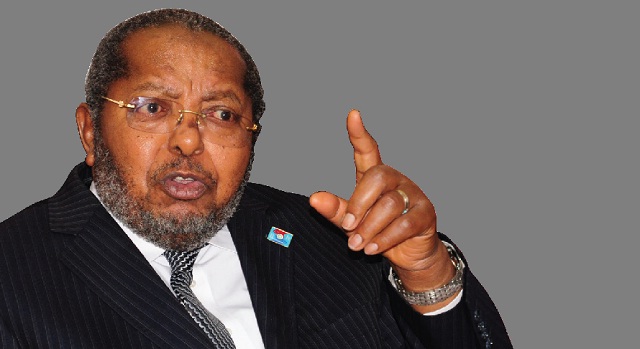
Implement recovery stimulus package
Economic experts told The Independent that the government must tangibly implement the measures outlined in the COVID-19 recovery stimulus package to jumpstart economic growth.
The government promised to put money into the Uganda Development Bank (UDB) to support the revival of the private sector business but the business community claim the conditions attached are so stringent.
Paul Lakuma, an economist and research fellow at the Economic Policy Research Centre at Makerere University said the government through UDB must consider relaxing the terms and conditions for potential borrowers to access the UDB money.
He said there should be accountability, good corporate governance and equity in the entire process.
“Some of these things come with delays,” he said, “We must understand that,” he added.
But the borrowers aren’t happy with this delay.
“Businesses are struggling and others closed,” Everest Kayondo, the chairman Kampala City Traders Association (KACITA) told The Independent.
“Government is keeping quiet…as if saying (businesses) should sort themselves out… and that is wrong. It must take lead.” Kayondo said, adding that most businesses may not qualify for the UDB relief package because of the terms attached.
The terms include having collateral to access the money; filling of NSSF returns and Pay As You Earn among others. Kayondo said the government should simply release the money through private sector bodies for members to easily access it and use it to save businesses and jobs.
Similarly, Kayondo said most commercial banks have not adhered to Bank of Uganda’s call on loan restructuring and related COVID-19 relief measures as most lenders continue to demand the accrued interest on loans that were running since March this year when COVID-19 measures were put in place.
Supply vs demand
Mutebile said COVID-19 pandemic has affected both the demand and supply side of the economy. He said though supply will initially recover in line with the easing of containment measures, demand will benefit only gradually from improvements in foreign demand and confidence levels as well as continued support from fiscal and monetary policies.
“Eventually aggregate demand is likely to increase faster than supply, thereby absorbing excess capacity,” Mutebile said.
Economy still facing more threats
The governor said Uganda remains highly vulnerable to recurring spouts of global financial volatility, stemming either from continued global economic weakness or the uncontrolled spread of the COVID-19 pandemic.
Other factors threatening the economy include; increasing Non-Performing Loans (NPLs) and high lending interest rates that could delay recovery of Private Sector Credit (PSC) extensions to pre-COVID levels.
On the upside, economic growth could turn out stronger than projected if the spread of the virus is contained, or if a vaccine or effective treatment is available earlier than is currently being assumed, analysts say.
Such a scenario, analysts say could lead to greater business and consumer confidence, factors that would lead to stronger economic growth.
But Mutebile said, amidst the COVID-19 and related threats, supporting the recovery of the economy is overriding in the conduct of monetary policy provided inflation remains in the range 5% +/-3 percentage points.
Inflation reports
Data from Uganda Bureau of Statistics and BoU indicates that annual headline and core inflation rose to 4.7% and 5.8% respectively, in July 2020, from corresponding levels of 4.1% and 4.9% in June 2020.
According to Bank of Uganda, the path for CPI inflation over the next 12 months largely reflects the influence of containment measures particularly on public transport and increases in prices of imported consumer goods as a result of higher taxes to support import substitution.
However, Mutebile said the decline in food crop and energy prices and subdued demand could partly hold inflation down.
Core inflation is expected to peak at 6.1% in the first quarter of 2021, while headline inflation could peak at 6.2%. In the medium term, the inflation outlook depends primarily on the speed and strength at which demand and supply recover.
Risks to the inflation outlook include a higher fiscal deficit and a more depreciated exchange rate due to the weakening external position.
On the downside, domestic demand may take longer to recover despite the gradual easing of the lockdown. Moreover, food crop prices and external sources of inflation are likely to remain weak in the near-term amid the global economic downturn.
The balance of risks to the inflation forecast are assessed to be on the upside with core inflation expected to rise above the 5% target within 12 months, even though GDP growth is expected to remain below its potential levels.
Lakuma however said that the government must put a lot of focus on key development sectors like agriculture and tourism by investing in them and supporting businesses that are operating there.
He said that tourism should be promoted and marketed by putting in place clear standard operating procedures to protect tourists who are potential sources of revenue for the sector.
He also said that the government must carefully invest public funds in areas that are planned for and not just sinking it [money] in non-productive areas such as political campaigns as the country gets closure to the 2021 general elections.
****
 The Independent Uganda: You get the Truth we Pay the Price
The Independent Uganda: You get the Truth we Pay the Price





